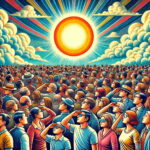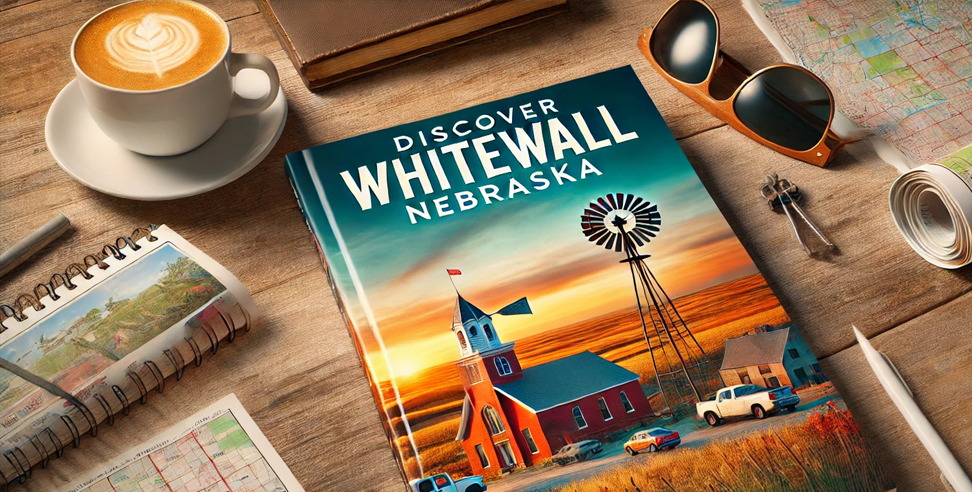 I’m proud to announce that I’ve been elected mayor of Whitewall, Nebraska. It was unanimous—or will be as soon as I update the websites I created for this event. Of course, you’ve probably never heard of Whitewall, Nebraska. That’s not surprising because it doesn’t really exist.
I’m proud to announce that I’ve been elected mayor of Whitewall, Nebraska. It was unanimous—or will be as soon as I update the websites I created for this event. Of course, you’ve probably never heard of Whitewall, Nebraska. That’s not surprising because it doesn’t really exist.
Today, AI makes it astonishingly easy to write and publish your own books with almost no effort. For a mere $16, I can buy a package, complete with artwork, that will help me create and publish my own guidebook for anywhere in the world. Seeing the shocking lack of substance in many of the books sold by Amazon, I have no doubt that countless people are using this method to churn out books.
But the question that haunts me is, who checks these for accuracy? Certainly not you—you bought it, trusting it as a guidebook. Amazon? Highly unlikely. At best, they might halfheartedly fact-check it using their own AI. And that’s if they bother at all.
From the earliest stages of my life, I was taught to revere books. They were sacred. While I could easily tell the difference between fiction and fact, it never crossed my mind that books might not be as truthful as they seemed. It wasn’t until high school, when my curiosity clashed with the written word, that I started questioning the accuracy of books.
 I remember one book in particular that boldly suggested staring into the sun for an hour every day to improve your eyesight. I can still feel the disbelief I felt reading that. Fortunately, although I was eager to escape the confines of my glasses, I realized this book was pure nonsense. But why? Why would someone publish something so dangerous, so absurd? Was it ignorance? A cruel joke? Or a calculated attempt to profit from blindness? Maybe the author had a thriving business in publishing books in Braille. Who knows?
I remember one book in particular that boldly suggested staring into the sun for an hour every day to improve your eyesight. I can still feel the disbelief I felt reading that. Fortunately, although I was eager to escape the confines of my glasses, I realized this book was pure nonsense. But why? Why would someone publish something so dangerous, so absurd? Was it ignorance? A cruel joke? Or a calculated attempt to profit from blindness? Maybe the author had a thriving business in publishing books in Braille. Who knows?
In today’s world of politically correct textbooks, the truth feels even more elusive. I don’t remember who said, “The victor writes the history books,” but isn’t it painfully true? We’ve all heard the whispers—Columbus didn’t really discover America. The Indian conflicts weren’t as black and white as the media portrayed. The Civil War wasn’t just about slavery. And if even these monumental stories are drenched in half-truths, what else is? What else have we blindly accepted?
Who can we trust? What can we trust?
Now imagine—just for a moment—that you have a grudge against, say, Whitewall, Nebraska. You generate a guidebook, tweak a few numbers, add some scandalous stories, and suddenly, Whitewall is the murder capital of Nebraska. With just a few keystrokes, you’ve rewritten reality.
It doesn’t stop there. Spend a few dollars on introductory website offers, create fake Facebook accounts, and publish the contents of your guidebook across these platforms. Use AI to tweak your text, making it seem like countless others are echoing your claims. You could even crown yourself Police Chief—don’t forget I’m mayor.
And here’s the terrifying part: the Internet will do the rest for you. Since you’re the only one writing about this fabricated reality, every search will point back to your book, your websites—validation by default.
Want to go even further? Make your claims so outrageous that the media can’t resist. They’ll amplify your lies, unknowingly driving even more traffic to your pages. SEO will reward you. Suddenly, fiction has become fact.
 Not long ago, I stumbled upon a story about a $2,000 bonus for anyone on Social Security who filed a 2023 tax return. It caught my eye, and I quickly Googled it. To my shock, several sites repeated the same story. But none had concrete details. A closer look at the site names revealed they were all unrecognizable. It was a hoax—a web of lies designed to look credible.
Not long ago, I stumbled upon a story about a $2,000 bonus for anyone on Social Security who filed a 2023 tax return. It caught my eye, and I quickly Googled it. To my shock, several sites repeated the same story. But none had concrete details. A closer look at the site names revealed they were all unrecognizable. It was a hoax—a web of lies designed to look credible.
In the face of such deception, how do we even begin to determine reality? I’d like to suggest common sense, but looking at our elected leaders, I fear common sense has abandoned us. Fact-checking? A noble idea, but with so many rewriting history to suit their narrow agendas—or banning books that challenge their views—fact-checking has become a lost art.
AI won’t save us, either. Right now, AI is nothing more than a glorified organizer of factoids, incapable of discerning truth from opinion. It mirrors human biases, amplifying the chaos rather than clarifying it.
I want to believe in the power of the written word. I want to trust it. But between the internet, AI, and those who would mislead us—whether out of ignorance, greed, or the sheer thrill of manipulation—it’s hard not to feel disillusioned.
So what’s the solution? Should we hide in our closets, waiting for the storm to pass? It’s tempting, isn’t it? But here’s the truth: unless more of us step up—willing to fact-check, willing to fight against book bans, willing to resist the rewriting of history for political correctness—we’re doomed to live in a world of shadows and half-truths.
I didn’t mean for this to sound so bleak. But if we don’t push back, what’s left? Maybe we’ll just accept the Homer Simpson lifestyle: grab a donut, shrug, and laugh at the absurdity of it all. Donuts, anyone?

© 2024, Byron Seastrunk. All rights reserved.










